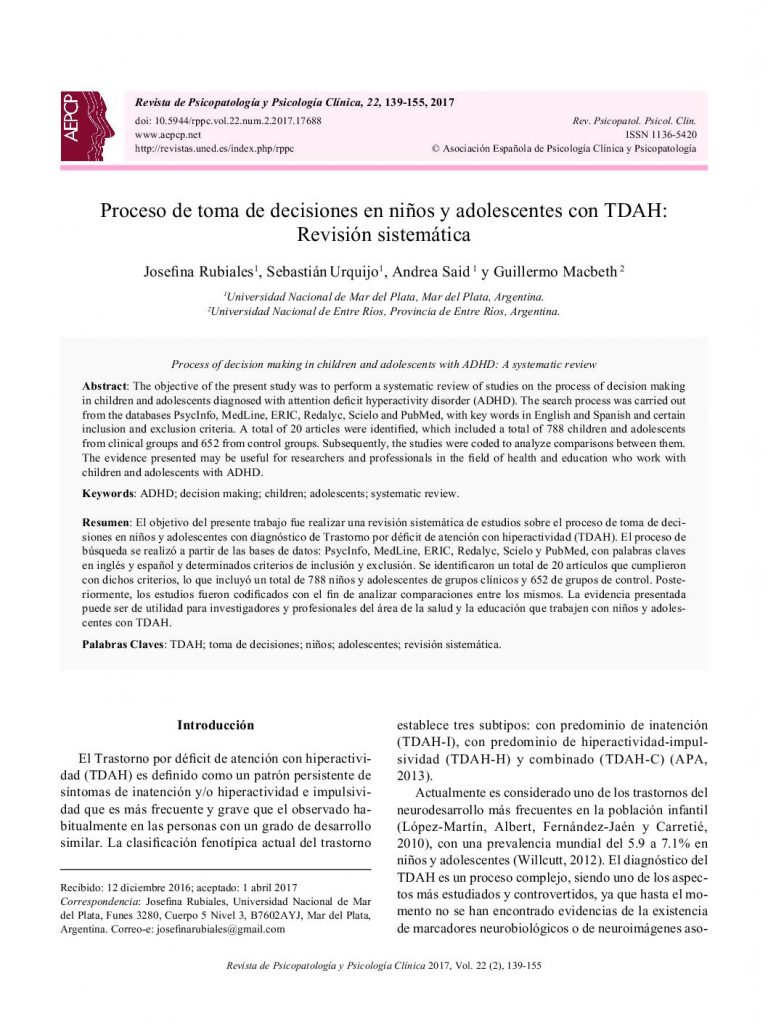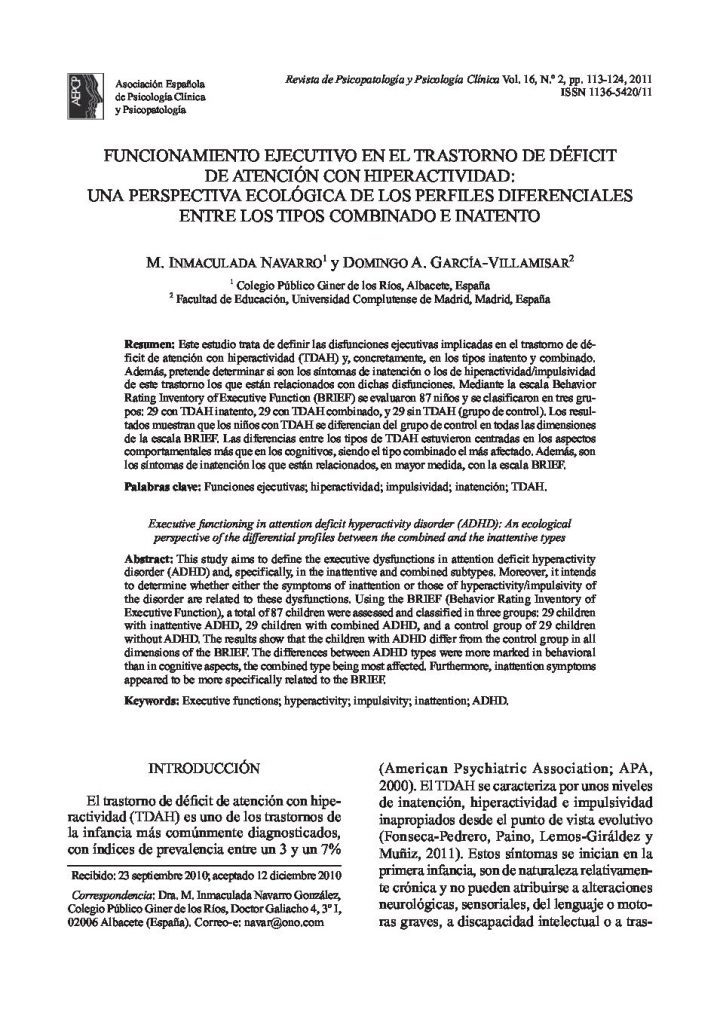Proceso de toma de decisiones en niños y adolescentes con TDAH: Revisión sistemática.

- PERE: Una nueva herramienta para valorar el reconocimiento de las emociones básicas y su aplicación en la esquizofrenia.
- Cuestionario de Sucesos Vitales (CSV): Estructura factorial, características psicométricas y datos normativos.
- Factores asociados a la ansiedad de los cuidadores de pacientes con enfermedad pulmonar obstructiva crónica (EPOC) durante su hospitalización.
- Entrenamiento en remediación cognitiva y habilidades emocionales en formato grupal para pacientes con obesidad. Un estudio piloto.
- Proceso de toma de decisiones en niños y adolescentes con TDAH: Revisión sistemática.
- Terapia cognitivo conductual integrativa.
The objective of the present study was to perform a systematic review of studies on the process of decision making in children and adolescents diagnosed with attention deficit hyperactivity disorder (ADHD). The search process was carried out from the databases PsycInfo, MedLine, ERIC, Redalyc, Scielo and PubMed, with key words in English and Spanish and certain inclusion and exclusion criteria. A total of 20 articles were identified, which included a total of 788 children and adolescents from clinical groups and 652 from control groups. Subsequently, the studies were coded to analyze comparisons between them. The evidence presented may be useful for researchers and professionals in the field of health and education who work with children and adolescents with ADHD.
El objetivo del presente trabajo fue realizar una revisión sistemática de estudios sobre el proceso de toma de decisiones en niños y adolescentes con diagnóstico de Trastorno por déficit de atención con hiperactividad (TDAH). El proceso de búsqueda se realizóa partir de las bases de datos: PsycInfo, MedLine, ERIC, Redalyc, Scielo y PubMed, con palabras claves en inglés y español y determinados criterios de inclusión y exclusión. Se identificaron un total de 20 artículos que cumplieron con dichos criterios, lo que incluyó un total de 788 niños y adolescentes de grupos clínicos y 652 de grupos de control. Posteriormente, los estudios fueron codificados con el fin de analizar comparaciones entre los mismos. La evidencia presentada puede ser de utilidad para investigadores y profesionales del área de la salud y la educación que trabajen con niños y adolescentes con TDAH.




